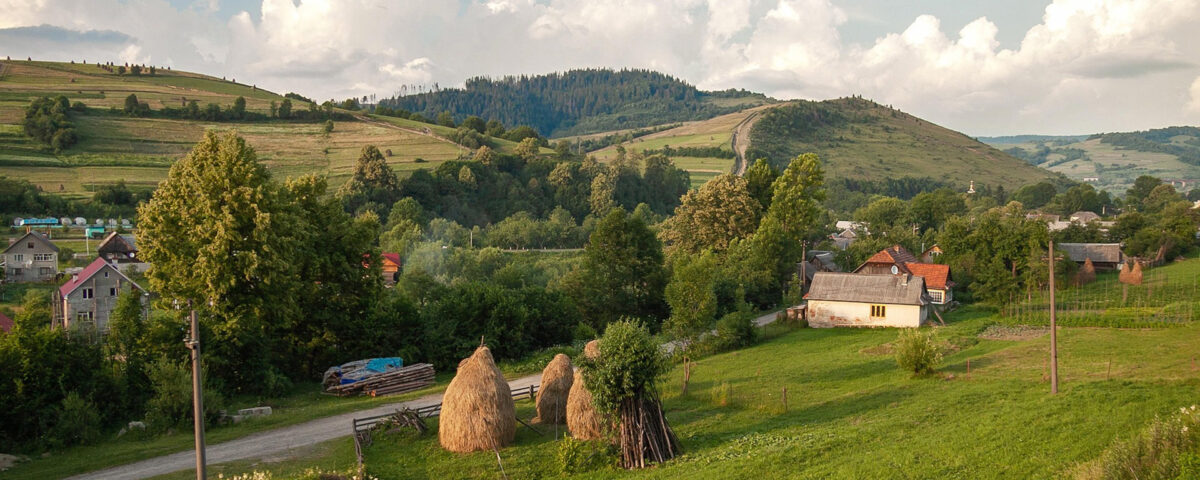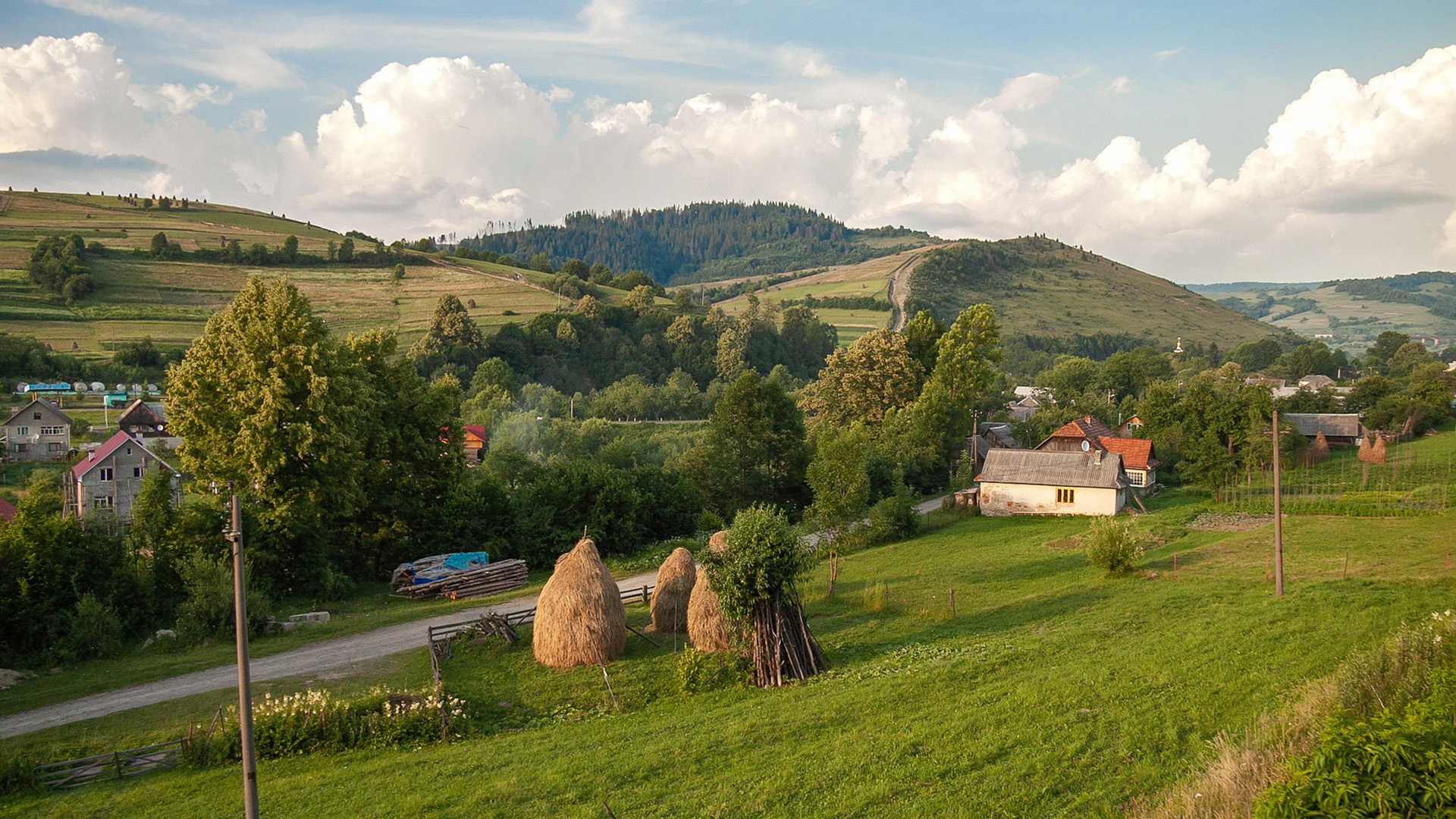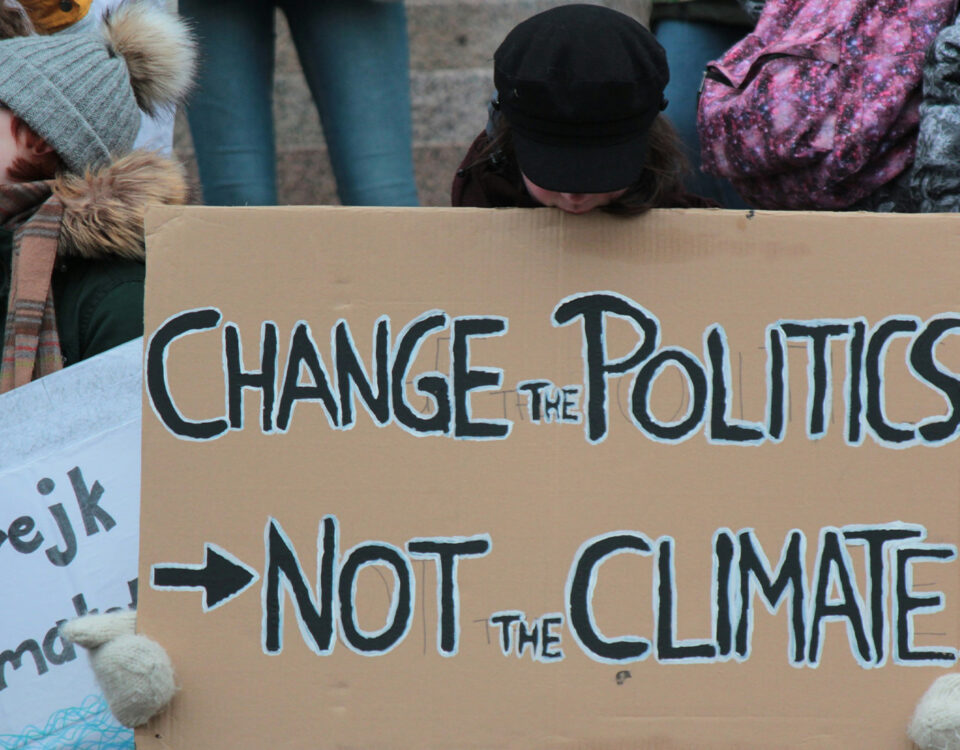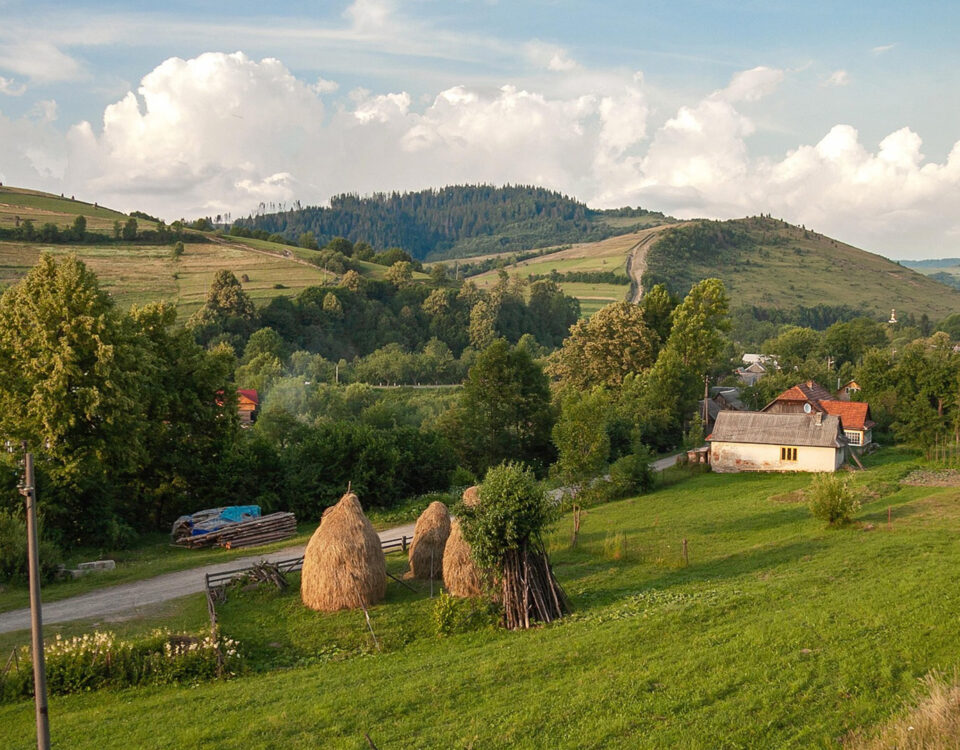Topics covered by Ukrainian niche new media specializing in ecology
The article analyzes the role of niche Ukrainian media specializing in environmental issues in the context of information overload and the dominance of news about the war. The author examines how these media outlets, such as “Ecopolitics,” GreenPostMedia", and “Ecoaction,” highlight current environmental problems, such as land and water pollution, the development of green energy, public eco-initiatives for rational consumption, and the impact of the war on the environment.
Authorship/Creative Team
Youth board Ukrainian team;
Author: Hlib Havrylov
Editor: Nataliia Habor
Translator: Halyna Stashkiv
Sources
Content:
Ecopolitics - https://ecopolitic.com.ua/ua/is (media platform about Ukraine’s environmental policies and environmental life)
GreenPostMedia - https://greenpost.ua/ (an information and analytical outlet aimed at popularization and development of eco-culture, as well as legislative and functional eco-regulations of Ukraine.)
Ecoaction - https://ecoaction.org.ua/?gad_source=1&gclid=Cj0KCQjw-e6-BhDmARIsAOxxlxV1rrNTZWC_NJ5hm3sc1aR4d37S7vrlLyDcElQn3yNPOEXR9xI9Fp8aAs6HEALw_wcB (the periodical about the environment in Ukraine)
Every day, the attention of the Ukrainian media consumer focuses on news platforms covering current events on the front line, political agreements between Ukraine and its allies, legislative changes, economic issues, public attitudes and other more pragmatic matters. Ukrainians are more interested in the map of air alerts, materials about parliamentary discussions on lowering/raising the age limit for draft and allocation of military assistance to Ukraine. Other topics in Ukraine are mostly relegated to secondary positions. Therefore, eco-themed new media are not exactly at the forefront of the information space. However, such media continue to exist, publish materials, produce special projects, update their headings, and offer media products on significant topics.
The global warming, CO2 emissions, soil pollution, deforestation, regulation and control of large industries, issues of household waste disposal, and rational consumption of natural resources are among the challenges that our society is now facing, for the most part, without realizing it. Therefore, the purpose of narrow-focused media working with eco-themes is to promote awareness of the importance of caring for resources and preserving them by highlighting and covering the relevant problems.
This means that niche media certainly include responsible outlets concerned about the rational consumption of natural resources, striving to prevent harm to the ecosystem, and preserve the planet for future generations. Therefore, narrowly focused media try to influence public opinion on environmental issues, contributing to raising environmental awareness and involving the public in solving these problems.
The previous sentence may sound rather banal and moralistic, but most of us never stop to think about these simple things.
Media projects that highlight environmental issues perform an important mission of promoting environmental conservation and broadcasting their views to the audience. But these views, as well as the narrowly-focused media themselves, for the most part, remain little known, even though influential in their niche. An analysis of how narrowly-focused media cover environmental problems can help to identify facts of abuse and violations in the field of ecology, as well as contribute to increasing the responsibility of government and businesses.
On the niche Ukrainian media focused on ecology
Ecopolitics
Ecopolitics is a media platform about Ukraine’s environmental policies and environmental life. Thematically, it covers various areas of ecology, publishes eco-friendly articles, promotes an eco-friendly way of life, and demonstrates what environmental changes are taking place in Ukraine.
Apart from positive aspects, Ecopolitics also covers negative stories. Thus, the editorial board publishes a Monitoring digest about the greatest violations in the ecosphere on a weekly basis. As a rule, these are the most high-profile cases about environmental damage over a certain time. Among them: illegal logging, land, water and air pollution. Ecopolitics covers both “new offenses”, informing about suspects and court proceedings launched against them, and the results of court decisions on similar previous violations. Also, the editorial board constantly raises the problem of damage to the environment of Ukraine as a result of the war. The periodical demonstrates the number of environmental crimes associated with hostilities, the estimated amount of damage, as well as the areas of environment that have been most affected. Such materials are presented textually and supported infographically, drawing attention to the fact that the ecosystem of other countries also suffers as a result of the war in Ukraine (for example, due to combustion products emitted into the air as a result of missile strikes).
The “Business” section focuses on companies that operate in the Ukrainian market and introduce changes in their work processes with a positive impact on the environment. As well as about businesses found to have certain environmental violations. Just like the previous section, this one covers environmental trends or anti-trends: such as innovations integrated by Ukrainian manufacturers to reduce CO2 emissions into the atmosphere, the payment of eco-taxes, or infrastructure changes in Ukraine and the world designed to preserve the environment.
The “Government” section covers legislative issues introduced in government committees designed to improve the environmental requirements imposed on private enterprises and state-owned establishments. This section highlights legislative changes in a variety of areas. In 2024, it published a number of automobile-related materials, focusing on Ukraine’s transition to the Euro-6 emission standard and the ban on the import of cars with Euro-5 or below engines. It also covers long-term development strategies that comply with EU legislation. Another popular topic is the ecological relations between Ukraine and Europe and the expectations of the European Parliament concerning certain steps towards stricter regulation of legislation on environmental protection. Just like the other sections, this section covers both positive aspects and changes that are currently taking place and negative issues.
The “Society” section deals with the social and environmental life of Ukraine. It mostly covers local stories, sometimes interviews with the authors of the relevant initiatives. It features materials about energy-efficient houses, in particular cases of how Home-Owner Associations reduce heating bills in winter; gives advice on how to choose a Christmas tree for the holidays without harming nature; covers recycling and ways to dispose of dangerous household items that cannot be thrown away. As a rule, the materials in this section are aimed to inform people about the positive experience of rational use of resources.
The “Green Energy” section covers news about obtaining electricity from renewable resources. Since solar power plants (SPPs) are common in Ukraine, most materials are about them. For example, how large businesses (supermarkets, filling stations, mobile operators) integrate SPPs into their buildings. There are numerous publications about SPP maintenance/self-service. Less often covered, but still rather common, is the topic of wind farms (wind power plants). In Ukraine, they are considerably less common than solar ones, but there are still businesses that choose to install wind farms. In this section, Ecopolitics also informs about the European experience in obtaining green energy and offers forecasts concerning the development of this industry in our country in the coming years. From time to time, there are reports of a practical nature. For example, there is a material on how to install solar panels at home. The report offers a step-by-step guide with specific figures, models and examples of calculations, plus convenient infographics. As a conclusion, the material summarizes who and under what conditions might benefit from installing solar panels. Given the blackouts, such articles are definitely relevant and now the decision to install SPPs looks like a potential opportunity to solve today’s energy crisis rather than just a trendy thing to do.
The “Global Green” section offers an overview of global environmental realities: legislative environmental changes, grant projects, and public environmental initiatives abroad. Most of the materials, of course, focus on Europe, but there are also news reviews of little-known and distant environmental markets, such as Brazil or Korea. Just like in the previous sections, Ecopolitics covers both positive changes in global projects and challenges. For instance, in December 2024, Ecopolitics published a piece on how countries failed to adopt a global agreement on limiting plastic. And in November, the outlet shared a pessimistic study by a group of scientists initially published in the journal Nature Communications, predicting that climate change would cause tens of millions of excess deaths, including in Ukraine. The study examines potential mortality factors and concludes that global warming will pose an even greater threat than air pollution. Also, the editorial staff adds that now air quality in Ukraine has improved, however the reason is not modernization, but rather a decrease in production volumes due to the war.
The “Technologies” section highlights ecology-related know-hows. The latest publications in this category include a material on the creation by Mercedes of an auto paint capable of generating electricity from the sun; a report on the new technology of charging smartphones with solar energy without a charger; a piece on the launch of the EarthCARE satellite to investigate the impact of clouds on the climate; as well as real-life stories about opportunities for electrification of municipal transport in Ukrainian cities. The materials in the “Technology” section mostly focus on enthusiasm and ingenuity in concepts that are unlikely to become reality tomorrow, but these seemingly ambitious topics do deserve interest. Once upon a time, the technologies that we routinely use today, such as WI-FI or electric vehicles, were also no more than concepts.
The “Comments” section contains feedback from eco-experts. Here, environmental experts, advisors and ministers share their ideas on the various topics of the environmental agenda. The most recent comments include pieces on why Ukraine has minimal taxes on CO2 emissions, about corruption in national parks, and why the war should not justify the abolition of environmental impact assessment.
Therefore, Ecopolitics choses to cover a wide range of ecological matters and systematically works on it.
GreenPost
GreenPost is an information and analytical outlet aimed at popularization and development of eco-culture, as well as legislative and functional eco-regulations of Ukraine.
In addition to the website, the editorial board publishes a weekly online and printed journal covering environmental events/problems of Ukraine.
The website features sections such as news, publications, investigations, blogs, and release announcements. In terms of topics, it includes 4 main sections: “agro”, “eco”, “energy” and “health”, which in turn offer narrower subsections.
The “Agro” section mostly covers the problems of the land market, the realities of Ukrainian agribusiness, estimates of losses caused to farmers due to the war, and other social and political issues regarding problems related to agriculture.
The “Eco” section focuses on materials that highlight climate problems, waste management and environmental pollution, in particular, the problems related to forests and water-bodies of Ukraine and how human activities affect the wildlife. The relevant materials published recently include a series of articles on the regulation of radioactive waste, on the pollution of the Black and Azov Seas by tankers, and on air quality monitoring. The “Energy” section features reports on green energy, fossil fuels, the fuel market, and energy efficiency issues. The main topics of December 2024 were the termination of Russian gas transit through Ukraine to Europe, the first steps of European countries towards full transition to “green power,” and the situation with blackouts.
What sets GreenPost apart from other popular new media in Ukraine that specialize in eco-themes is the “Health” section. It covers diseases, medicines, medical reform, medicine abroad, and another comeback of Covid-19.
In addition to the website and journal, GreenPost also has social network accounts. In particular, they maintain an Instagram account that posts stories on a daily basis. This is the most active social network account of the project with as many as 15K followers. They are also present on other platforms (YouTube, Facebook, Telegram), where they constantly update content, but the following there is much more limited. Therefore, the best social network for communication is Instagram.
Ecoaction
Ecoaction is the periodical about the environment in Ukraine to be discussed next. This is a platform of a non-governmental organization that unites experts and activists around the idea of preserving the environment by influencing decision-making. The topics on the agenda of Ecoaction are quite common for the Ukrainian eco-media market: the struggle for energy efficiency, renewable energy, combating climate change, the development of an ecologically mature society, regulation of the relevant spheres of life, and compliance with environmental standards. The main page specifies the outlet’s vision and mission, as well as the values of the team. In this same page, the editorial board invites readers to join the project and subscribe to the weekly newsletter that offers the current environmental news of Ukraine and the world and information about the current projects of the team.
As an organization, Ecoaction is now working in the following areas: a strategy for the post-war recovery of Ukraine, transition to renewable energy sources along with curtailment of coal, reducing pollution from transport, reducing greenhouse gas emissions in all sectors of the economy, and adapting to the effects of climate change.
The website has a separate section for current publications, which is constantly updated, publishing journalistic materials that, for the most part, cover the topics mentioned above.
The publications mainly focus on environmental issues within Ukraine. The authors write about the possibilities of improving the situation on our planet through legislative changes and also offer their suggestions about how to solve problems through measures to regulate the agricultural market, transport, and commerce. Among the news reports or announcements, which are not so many, enough analytical materials can be found with clear-cut step-by-step descriptions of the perspectives for solving current environmental issues. Ecoaction, unlike Ecopolitics and GreenPost, often offers materials for the professional audience with a sufficient level of eco-awareness and understanding of terms. For example, there is a report with a somewhat obscure title “How to Implement the Nitrate Directive within Farms and Countries”, which analyses the introduction of new standards for changing agricultural approaches and reducing ecosystem pollution due to agricultural activities. Even though the report abounds in specialized terms, it is presented as a post-discussion overview, divided into blocks of real examples, which describe the advantages of the process and the real experience of neighboring countries. The editorial board provides three video webinars to go with the text, where the experience of agropractice is covered in a broader and clearer manner and where such practices are most effectively applied. These videos too contain numerous specialized terms, so this content is aimed at a “well-prepared” audience. Such reports are unlikely to gain popularity and get broadly shared among readers, however, this is a high-quality example of niche journalism, which delves into the topic and reveals its subtleties.
Another fresh analytical material focuses on the question “Will the New Nuclear Reactors Really Save Ukraine’s Energy System?”. The topic is currently important due to the negative trends with blackouts and the understanding that it is now extremely important for Ukraine to find ways to provide itself with various power sources. This analytical report is designed in a question-and-answer format, which reveals the need for completing the construction of KhNPP, the creation of new power units from scratch, the issues of NPP protection and corruption risks, as well as whether there is a future for the new reactors. The report addresses the challenges that we may face in the realities of 2024–2025 and refers to similar experiences in the US. The text also relies on specific figures and considers the issue of which energy source is more beneficial for Ukraine, comparing the cost of electricity from nuclear power plants with that from other energy sources (for example, solar).
Another specialized analytical material that stands out among others was published in early December 2024 and focuses on the war, its damage to the environment and whether it would be possible to bring the eastern neighbor to justice. The authors immediately give us a spoiler – not really. The material elaborates on the most war-affected areas and the dynamics of environmental losses since the beginning of the full-scale invasion. The editorial board provides the estimated amount of losses as of July 2024 according to the Prosecutor General’s Office (UAH 250 billion) and explains why Ukraine is a pioneer in the investigation of such crimes and how at the initiative of Ukraine, discussions are underway at the international level to recognize “ecocide” as a crime. The article also deals with problems in investigations such as hostilities-related risks when assessing environmental impacts in certain areas. The material also describes how the process of documenting ecocide-related crimes looks from a legal point of view: for example, in most cases, in order to objectively document the damage caused to the environment, it is not enough to make a photo/video report, instead it requires a professional examination, sampling, and laboratory analysis. The demonstrable elements and clarity of the presentation are also important here in order to promote the topic among the mass audience. Infographics, tables, or in this case, an interactive map showing the geography of the spread of war damage and the number of specific cases make it possible to understand the reality. A separate block is devoted to the issue of the Kakhovka HPP, or rather the destruction of its dam and how this event adversely affected the environment by launching the “domino effect” and destroying rare fertilizers, agriculture and forestry, wildlife and national parks. The report also provides indicative financial losses in relation to the areas affected by the dam destruction. At the same time, the topic of international criminal law and ways of bringing the Russian Federation to justice is raised, and since at the end of 2024 “ecocide” was not recognized as a crime, there are no grounds for prosecuting for the war crimes of ecocide. At the same time, the authors of the report are not entirely pessimistic about the current situation, because in modern history there has already been a precedent of compensation by the aggressor state for damage to the environment as a result of Iraq’s invasion of Kuwait in 1990–1991. And since now Ukraine documents the environmental damage caused by hostilities and investigates them within the framework of criminal proceedings in the courts of Ukraine – this will provide additional evidence for proving the damage caused in international courts. What is more, according to experts, it is not the country itself that is persecuted in court, but the people who give the orders that result in harm to the environment.
The style of Ecoaction’s publications is somewhat different from that of Ecopolitics and GreenPost. The journalistic materials that are published here are usually of an analytical nature. Problematic topics are raised, solutions are proposed, and expert opinions are provided. You might remember that the online journal GreenPost has a wider thematic spectrum, and in addition to analytics, the resource provides a lot of news reports. Meanwhile, Ecopolitics is the leader in the number of publications and in terms of themes it mostly covers events in Ukraine.
Despite the fact that the environment is not the number one topic in Ukrainian society and is unlikely to become such in the near future, the media working in this area perform a very important task of researching, analyzing, getting to understand this market, and transferring this knowledge to readers. After all, our future and the future of the next generations directly depend on the state of the environment. The fact is that the number of environmental issues keeps growing. The new problems and challenges, such as the war, and its consequences are much more difficult to resolve and eliminate compared with violations of environmental legislation such as local logging or driving non-eco-friendly vehicles. This means that now Ukraine’s ecological media market bears responsibility for broadcasting and disseminating information about the growing concerns as well as for the involvement of the public, international organizations, and experts in combating the negative consequences of today’s events to prevent potential disasters.
Sounds hyperbolic, doesn’t it? However, the more rational society is (not only in Ukraine), the more we understand about the damage and potential threats that we cause by our actions, the easier it will be to preserve the ecosystem the way we inherited it from the previous generations. That is why it is important to start talking about the state of the environment, as well as to spread practical ideas about preserving the environment.
Specialized media that talk about environmental problems and promote eco-themes might serve as the first confident step on the way to solving the macro-environmental problems that we face by instilling the right habits and actions both at the level of private life and in state/international initiatives. The more high-quality environmental new media will appear, the more society is likely to embrace the trends of eco-life.
![]()








